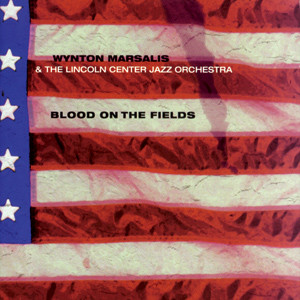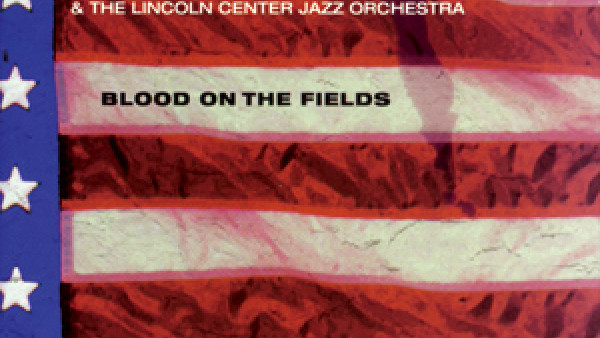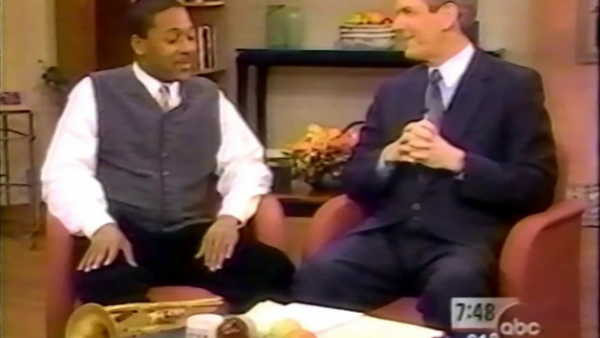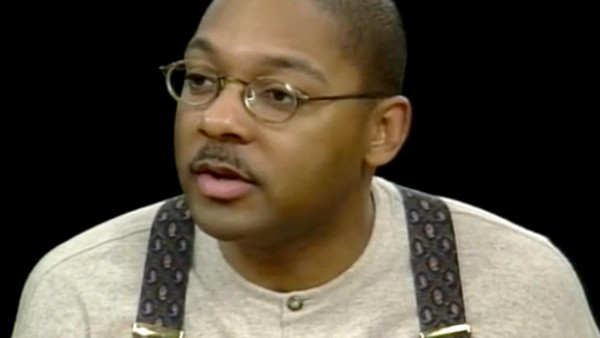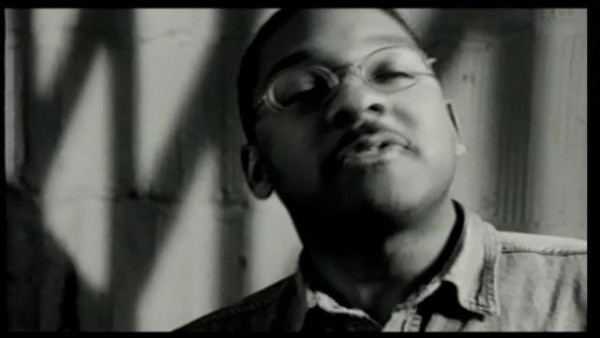Wynton Marsalis has turned the hardships of slavery into sublime jazz
A three-hour oratorio about the history of slavery where the audience comes out whistling the tunes has to count as some kind of a triumph. Blood on the Fields by Wynton Marsalis – who wrote both the music and the libretto, and who performs the work at the Barbican on Tuesday with his Lincoln Centre Jazz Orchestra and the three featured vocalists of John Hendricks, Miles Griffith and Cassandra Wilson – is an extraordinary achievement by any standards.
While the London concert is sold out, everyone will have a chance to hear it soon when the Sony CD of the piece is released.Though previously Marsalis’s music has, despite his abundant gifts as a trumpet soloist, tended to err on the side of a rather dry classicism, Blood on the Fields is compellingly emotional. As Marsalis is a controversial figure in jazz, whose disdain for the avant-garde and for popular black music forms such as rap has earned him his share of enemies, this is his best defence yet. Indeed, it’s a counter-punch that it may be difficult to recover from.
Dealing with the experience of American slavery from the middle passage to arrival in the New World, the work resounds with the whole history of jazz, from fabled field-calls and hollers, to gutbucket New Orleans blues, ecstatic gospel ululation’s, and the elegant, Ellingtonian measures of classic Harlem swing. The musical story doesn’t stop there, of course, as the historical material is played from within a contemporary, post- modernist, idiom where the cool-school harmonies of Miles Davis and Gil Evans, and the splintered orchestral voicings of Charles Mingus provide much of the dominant colour.
Each of the three vocalists brings their own contribution too: John Hendricks – the veteran scat-singer – gets to do his thing in one mesmerising solo- feature that will surely stop the show; Cassandra Wilson, who is the most affecting female jazz singer since Billie Holiday, Betty Carter and Shirley Horn, adds her deep-voiced melancholy and incomparable country-blues feeling; while the gospel-trained Miles Griffith, on the face of it a less powerful singer than Hendricks or Wilson, supplies the necessary sense of balance through his deacon-like strength, as well as lending a suitably churchy vocal response to the calls of the orchestra’s congregation of horns.
The music of the 14-piece band is full of glorious, bravura effects that hark back to the earliest days of jazz, with Marsalis’s own trumpet crowing, whinnying and barking in the opening number in a way that recalls the first-ever jazz recording by the Original Dixieland Jazz Band 80 years ago. With the orchestra built around several key personnel from Marsalis’s own small groups, he has been able to write for particular instrumental voices, and thus use the expressive potential of the soloists to the full. Though the written score is complex and exacting, there’s still plenty of room for improvisation.
“I always tell the musicians that they can do what they want with the music,” Marsalis told me last week. “It’s just an outline, but the voicings for when the horns are all playing together, those can’t change. There’s a lot of room for the rhythm section to improvise, and there’s a lot of improvisation going on around that between the rest of the band. I know the personalities of the musicians, because with most of them I knew them when they were younger, and they came up with me.”
If we could have expected Marsalis to get the music right, the accomplishment of the libretto is still something of a shock. Though Marsalis has written before, contributing a stylish, aphoristic and often witty text to the book Sweet Swing Blues on the Road, from 1994, where short essays or impressionistic sketches act as a complement to Frank Stewart’s photographs, the poetry of some of the lines from Blood on the Fields rewards close attention.
“I think I hear a drum, I think I hear a drum / Playing proudly, pounding, saying softly, come” from Cassandra Wilson’s opening song, gives an idea of the way he uses rhythm, and this is extended in the almost Brechtian device of having lines voiced in chorus by the orchestra to preface each movement, which Marsalis conducts as if they were musical phrases. His feeling for the poetic gesture and its place within a context of jazz performance is evident in Sweet Swing Blues, where he writes that: “Whenever somebody plays something good on our bandstand, we jokingly cup our hands together, reach down, scoop up the sound, and pour it all over our faces like we’re bathing in it.”
Blood on the Fields was premiered in New York, at Lincoln Centre’s Alice Tully Hall, on 1 April, 1994. It was received with extravagant praise. A star since his first recording as a leader at the age of 19, Marsalis, now 35, has not produced anything so completely satisfying before, despite a number of attempts at extended forms.
Moreover, the history of the extended form in jazz has never been a particularly fruitful one. Apart from the suites of Duke Ellington and Billy Strayhorn, there has been little that sounds like more than a compilation of themes, perhaps as a result of the generally haphazard and under-funded nature of most jazz commissions. Of Blood on the Fields, Marsalis says that: “With something that long, it’s always the form that’s difficult. The problem is one of keeping the form together, and I had never done the words myself before. The story is one thing that makes it easy to keep it organised. I know how I want it to sound but it’s difficult because it’s so big. In mixing it for the album, the problem is the dynamics – what’s loud and what’s soft.”
That Blood on the Fields has proved so successful might be due to several things, though the presence of the vocalists and hence the need to write proper tunes is probably paramount. Certainly, the theme of slavery, and its inevitable contemporary resonance, is one that Marsalis feels deeply. Nor does he see any great sense of liberation in present-day American society. “Slavery is just the same social and political stuff as is organised today,” he said. “It’s people being stripped of their dignity and not given the opportunity to participate. Nowadays it’s reflected in people being put in prison, in being subjected to misconceptions in the media, and in incorrect perceptions of groups of people.”
Accordingly, Blood on the Fields offers no great messianic sense of release from bondage. The libretto ends on a note of cautious optimism, with the repeated refrain of the closing number, “Freedom’s in the trying / Walk on through the door” preceding a last African imprecation from the chorus, and the band’s final theme. The songs, though, are something else, especially when delivered by Hendricks and Wilson. They have such a wonderfully stubborn, indomitable feel to them that they really do bring a rare, authentically humanist sense of grandeur to the work. And if you can whistle that, there has to be hope somewhere.
`Blood on the Fields’ is performed Tues, Barbican, London, EC2 (0171- 638 8891), some tickets may be available on the day; the CD is released on Sony
by: Phil Johnson
Source: Independent

